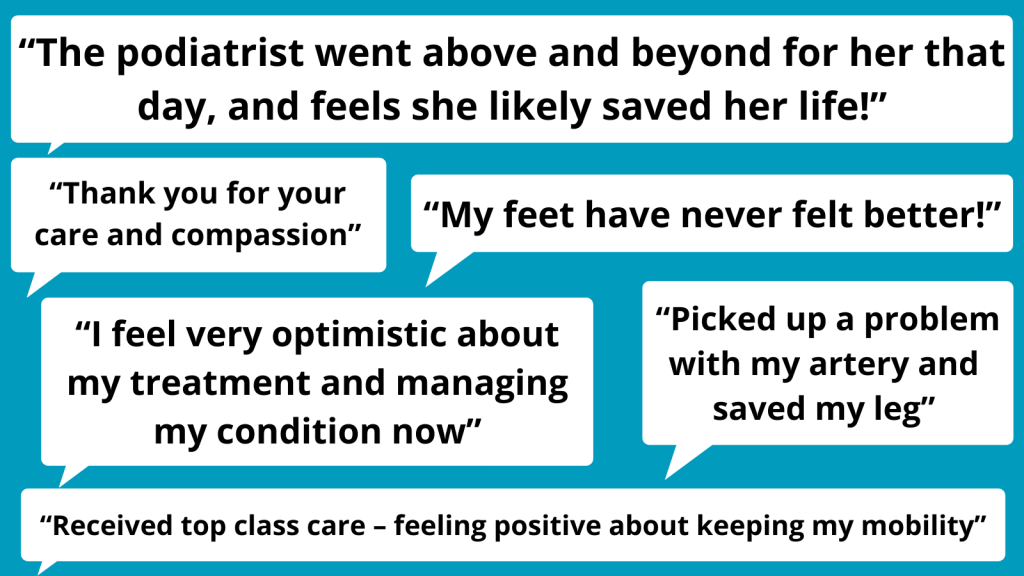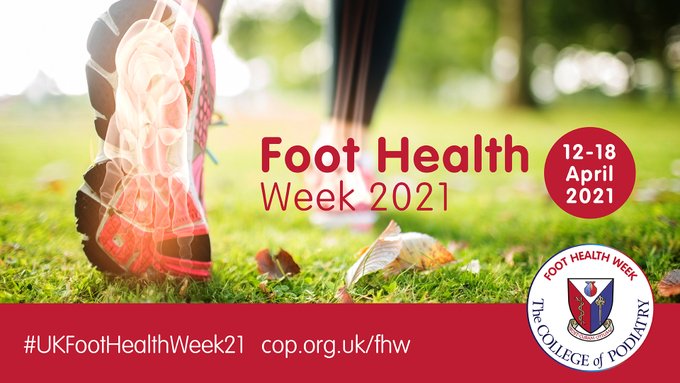National Foot Health Week
To celebrate National Foot Health Week, we look a little closer at podiatry (the treatment of feet, ankles, and lower leg conditions).
Podiatry has the following benefits:
- reducing secondary care intervention
- preventing foot ulceration and amputations of the foot or leg
- maintaining independence of vulnerable groups through good foot health
- preventing mobility difficulties through earlier intervention allowing patients to remain in their own homes.
Many foot conditions can be appropriately and safely managed by individuals themselves without ever becoming ‘patients’ if they have the confidence to do this safely and are equipped with the necessary skills and knowledge. Foot and lower limb problems are common and are a significant cause of ill health, pain and disability and can lead to impaired balance increasing the risk of falling. It is estimated that eighty per cent of older people have foot related problems.
There is evidence that footwear can cause significant foot problems and that by helping patients and the public to recognise and make good choices appropriate footwear can prevent falls, make treatment plans more effective and help prevent the development of new, or the deterioration of existing foot conditions such as ulceration. During treatment, podiatrists assess, diagnose and provide expert information on the patients footwear.
Good footcare is extremely important aspect to maintaining good mobility and prevention problem occurring in the future it is also essential in supporting an individuals ability to remain at home, mobile and pain free whilst the regular checks during appointments act as an early detection system ensuring prompt treatment and prevention of more serious foot health problems from developing. Footcare also includes footwear advice, health promotion and signposting when problems arise such as a deterioration in health status, support of hospital discharge and the reduction of readmissions to secondary care and the resultant costs incurred.
Core podiatry is vital in maintaining the integrity of the foot in patients whose medical condition places them at risk of developing complex problems. Patients at ‘High Risk’ in the NICE classification are more often seen by podiatrists who specialise in diabetes or extended scope podiatry practitioners usually working as members of a multi-disciplinary team.
The MLCO podiatry team has podiatrist who specialise in diabetes, rheumatology, vascular, wound care and muscular skeletal conditions to assist patients. Furthermore, as a department we provide routine podiatry, footcare, insole provision and nail surgery. Check out the amazing feedback about the service below!
Find out more about our Podiatry service here.


